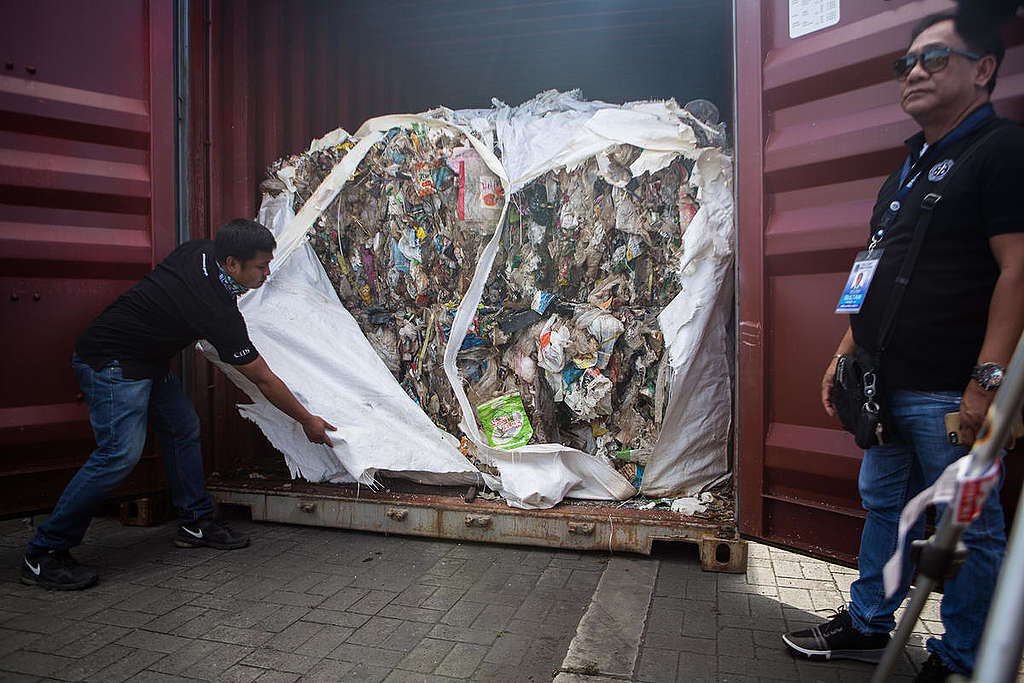Quezon City – Environmental groups today demanded quicker, more urgent action from the Philippine and South Korean governments on waste imports. The groups are calling for an immediate permanent ban on all wastes imported into the Philippines, as well as the immediate return of the remaining garbage from South Korea. The call was made just as the provincial government of Misamis Oriental this week held a hearing on the illegal waste shipment that has been languishing in the municipality of Tagoloan.
The garbage, which has made a portion of the Phividec Industrial Zone here seem like an open dumpsite, caught fire on August 15, possibly because of the presence of methane produced by the trash, adding toxic smoke to the threats that residents and workers in the area are already exposed to. It took 11 hours before the fire was put out.
“The pollution from the fire is a wake-up call to speed up the removal of the garbage. We can no longer allow another incident, accidental or deliberate, to occur and put the health and safety of the people at grave risk. President Moon Jae-in should now intervene to hasten his country’s re-importation of their own trash,“ said Aileen Lucero, national coordinator of EcoWaste Coalition.
Following the spate of controversies on waste importation, an administrative order is expected to come out this month from the Department of Environment and Natural Resources (DENR), which imposes a three-month moratorium on all waste-related imports. It also stipulates a P3-million security bond for every permit issued to importers, which is intended to cover potential export costs should violations be found. But environmentalists point out that the measure is very temporary and fails to address long-standing threats from waste imports.
“We need urgent action on long-term solutions. If the Philippine and South Korean governments are serious in solving this crisis, they should act now to legislate a policy permanently banning waste imports. This should include prosecuting and penalizing parties involved,” said Abigail Aguilar, regional campaign coordinator of Greenpeace Southeast Asia.
The South Korean garbage, which arrived in the Philippines in July and October last year, were misdeclared as “plastic synthetic flakes,” but actually contained contaminated mixed plastics, discarded batteries and other electronic wastes, soiled diapers, used dextrose tubes, and other hospital and hazardous wastes. The consignee, Verde Soko Philippines Industrial Corporation, also failed to secure an import permit from the DENR.
An initial batch of garbage-filled containers, weighing 1,400 tons, was sent back to South Korea in January, but the return of the remaining 5,177 metric tons has been undergoing several delays. This last shipment has turned portions of a government property, which is surrounded by residential communities, into an open dumpsite, but without the stringent measures required to control the environmental and health risks that such a site poses.
More information:
Aileen Lucero, National Coordinator, EcoWaste Coaltion | [email protected] | +63 917-8369592
Abigail Aguilar, Regional Campaign Coordinator, Greenpeace Southeast Asia | [email protected] | +63 998 589 2551
JP Agcaoili, Communications Manager, Greenpeace Southeast Asia – Philippines | [email protected] | +63 949 889 1334

Let’s tell the world that we are not a garbage dump!
